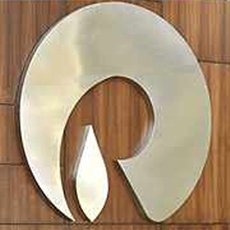 Analysts may be seeing a positive for Reliance Industries Limited in the Rangarajan panel’s recommendations on gas pricing, but the committee’s formula would work out the natural gas price at less than what RIL has been seeking for its KG-D6 block produce.
Analysts may be seeing a positive for Reliance Industries Limited in the Rangarajan panel’s recommendations on gas pricing, but the committee’s formula would work out the natural gas price at less than what RIL has been seeking for its KG-D6 block produce.
Based on the panel's formula, the base price of domestic natural gas comes to around $7.4 per million British thermal unit (mBtu), but the pricing formula proposed by RIL, officials say, translates the price into $13-14 an mBtu.
The company had earlier proposed to price KG-D6 gas at 12.67 per cent of Japan Customs-Cleared Crude, plus $0.26 per mBtu.
It had said the formula should be applied to KG-D6 output, since it was being used for imported liquefied natural gas.
Currently, for gas produced from its field, RIL gets $4.2 an mBtu, fixed in 2007 on a formula linked to Brent crude oil price.
A price revision is due in 2014.
The committee has rejected the RIL proposal, primarily on the argument that increasingly crude oil is not being used for pricing natural gas.
“Oil price escalation is one of the mechanisms suggested by several stakeholders.
This is also in operation in a few long-term
The main reason for adoption of oil price escalation formula in Asia-Pacific and continental Europe is that gas replaces oil as fuel for domestic and industrial purposes.
The share of gas sold globally under an oil price escalation formula is gradually coming down,” the committee has said in the report it submitted to the government recently.
A senior official argued Japan, too, had discontinued the practice of linking gas price with crude oil for some of the recent contracts.
According to government calculations, the $7.4 price will entail an additional subsidy burden of Rs 28,800 crore (Rs 288 billion).
Natural gas is primarily consumed by the fertiliser and power industries.
Since the government’s share in revenues from all the producing gas fields is around 12 per cent, the rise in its share of profit would increase by less than Rs 100 crore (Rs 1 billion) and royalty by about Rs 100 crore (Rs 1 billion). The panel’s formula is the mean of the producer price of liquefied natural gas imports to India and the price prevalent in the US, Europe and Japan.
In a presentation to analysts, RIL welcomed the move of aligning Indian gas prices with international markets ‘which will act as a bridge for gas on competition in the future.









